Why is local bottling of water sustainable?
Why is locally bottled water more sustainable?
Tap or bottle your own water using a water cooler connected to the pipe.
That is much more sustainable than serving factory bottled bottled water.
Do you want to know exactly how that works? We list the facts below.
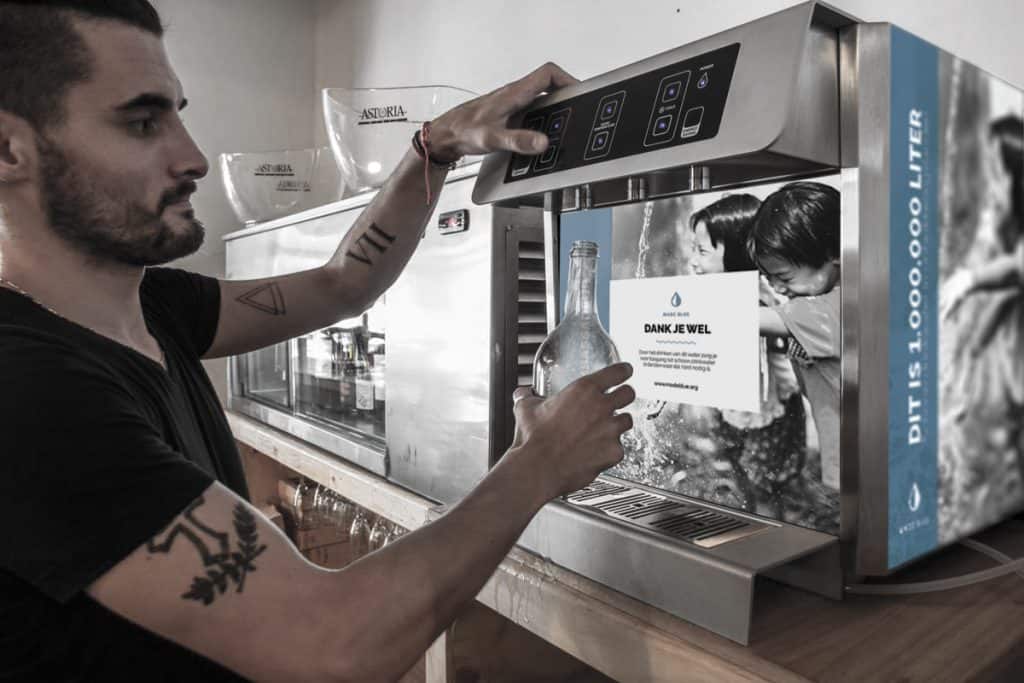
Less CO2-emissions
With Made Blue you choose a water cooler connected to the pipe instead of spring water or mineral water. You always tap freshly cooled water from it, in most cases filtered and sparkling if you want.
A lot of CO2 is emitted during the production of spring water in the factory. A study commissioned by the Consumers’ Association showed that bottling one glass bottle of spring water emits 450 grams of CO2. That is equivalent to a car ride of about three kilometers! This is mainly due to the production of the glass, the bottling process and the transport to and from the catering industry.
REUSING IS BETTER THAN RECYCLING
Glass is made by melting sand, soda (sodium carbonate) and lime together. This is a very intensive production process and therefore costs a lot of energy.
In the Netherlands, a deposit system is often used with all the associated transport. Large glass bottles in the catering industry usually disappear into the bottle bank and are melted down again into new glass.
In both cases, it is much more sustainable to reuse bottles locally, because no transport is required and the melting process also costs energy. With a deposit, a bottle only lasts up to 40 times and with local bottling up to 3 years.
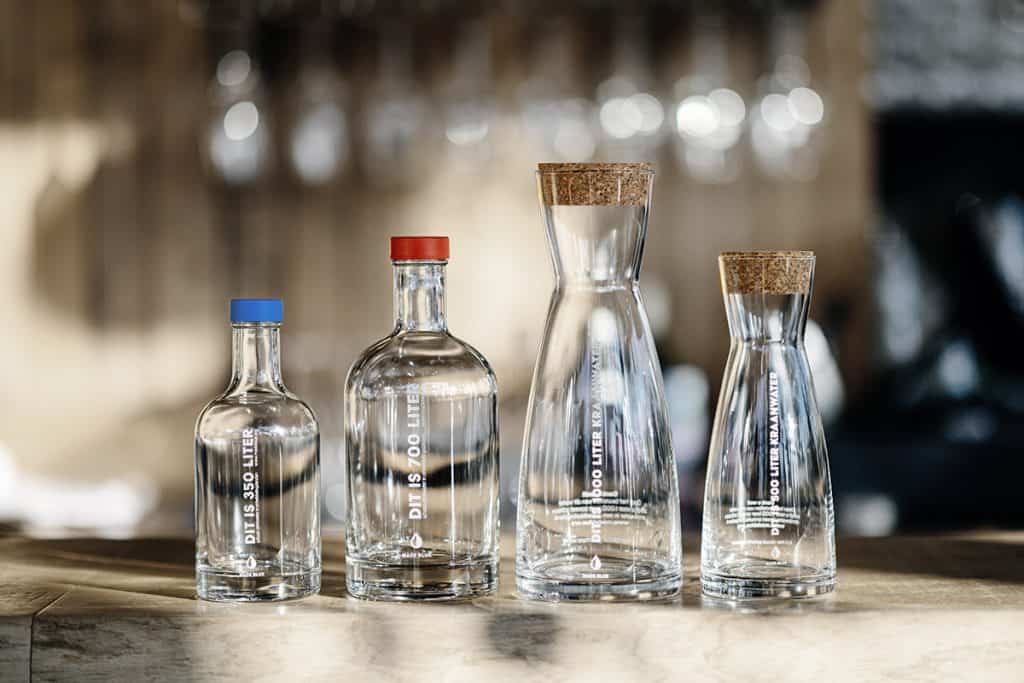
“
A glass bottle of spring water from the factory emits as much CO2 as a three-kilometer car ride.
”
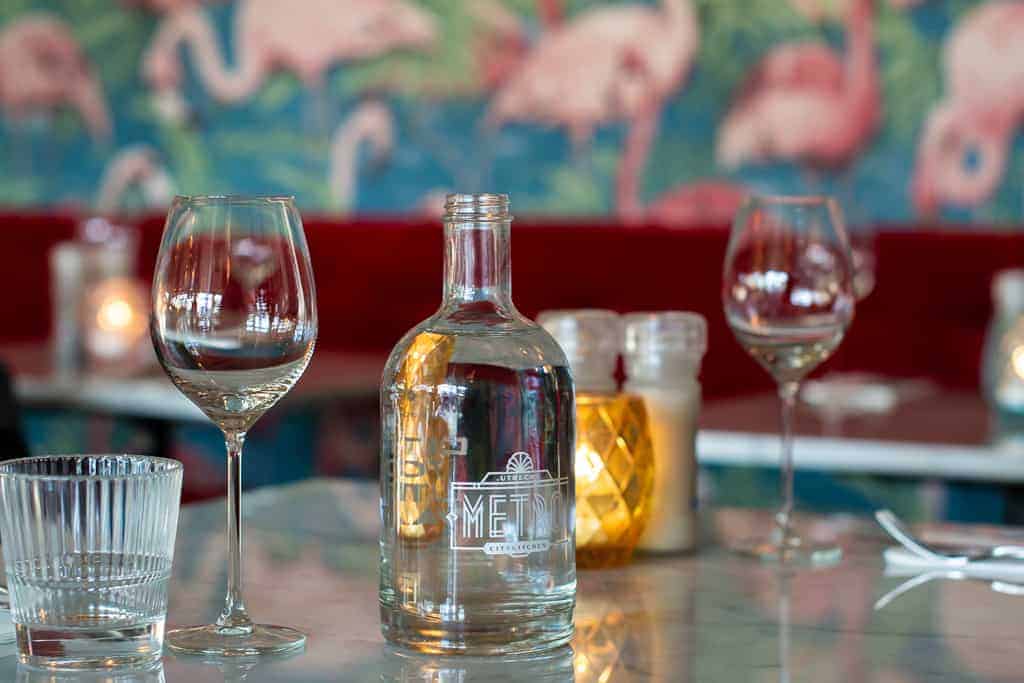
100 TRUCKS
It is difficult to express the reduction in footprint when using a water cooler in exact kilos of CO2. We can, however, give a calculation example.
Our figures show that our ambassadors in the hospitality industry serve an average of 400 bottles of water per month. This is an estimated 225 large and 75 small bottles per month. That’s about 4 roll containers.
Assuming that 12 roll containers fit in a city truck, three catering entrepreneurs together already keep one truck off the street. In other words: our 300 ambassadors together keep 100 trucks off the street every month!
Less CO2 in Africa
When people have to rely on polluted water, they will boil it before use, often over an open fire, especially in remote areas. By making clean drinking water available, this is no longer necessary and therefore much less wood or coal is burned, which saves a lot of CO2 emissions and harmful smoke.
For example, the IRC calculated that a ceramic water filter produces 1.03 tons of CO2 per year per filter. Conservatively calculated with 10 users per filter and the UN figure that 1 person needs at least 20 liters of water per day, the filter is good for 73,000 liters per year. This means that 1 million litres of clean drinking water results in a CO2 saving of 13.74 tons in approximately half of our projects.
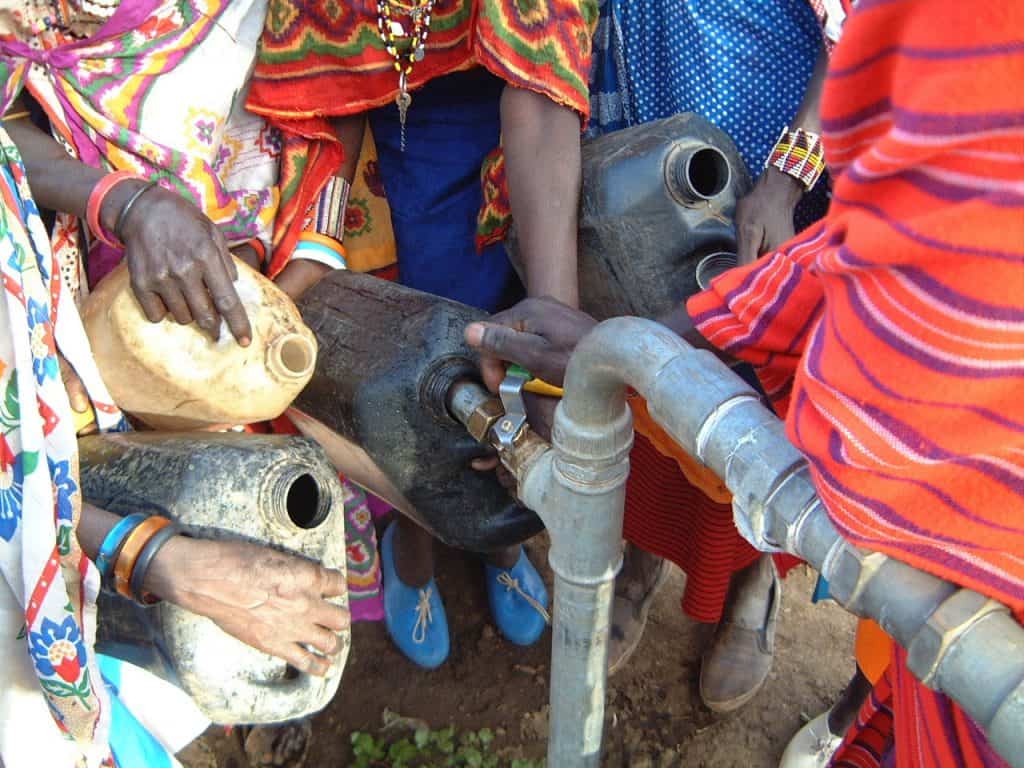
1 LITRE
Made Blue Water
= 1.000 liter
drinking water in developing countries
+ 7 kg
of CO2-emissions prevented
& 500
plastic bottles or bags saved
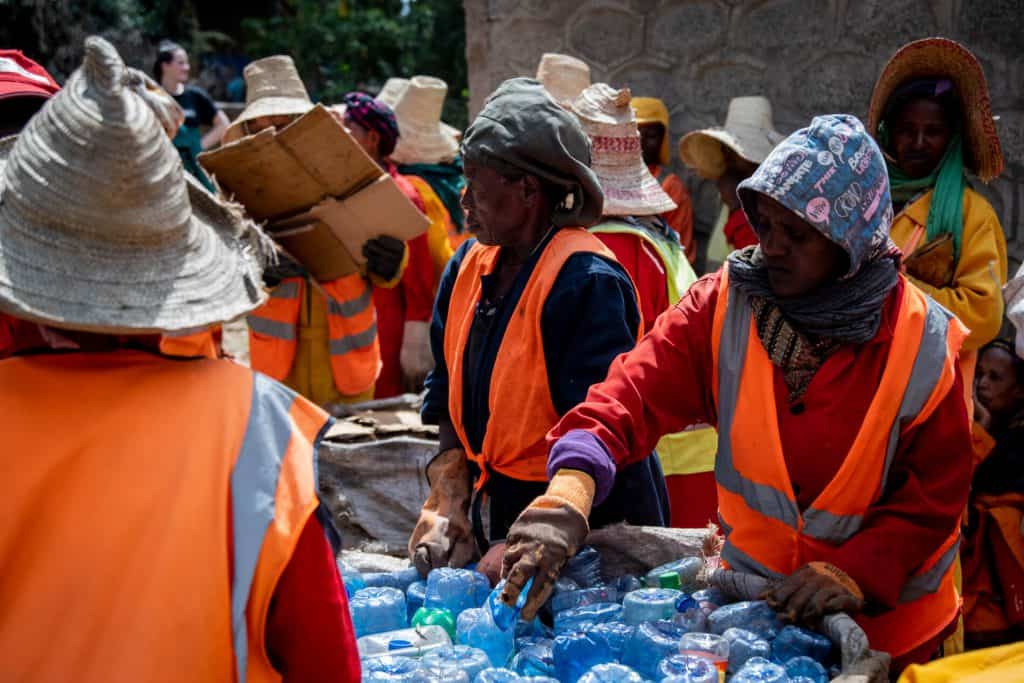
less plastic soup
Our water projects prevent lots of plastic waste in developing countries as well. In urban slum areas, people tend to buy small quantities of clean water, packed in plastic bottles or small plastic bags, in about half of our projects.
In many cases, this plastic ends up on the streets and in rivers after use, eventually becoming part of the plastic soup. A water supply in a slum ensures that people start working with jerry cans and no longer have to throw plastic.
1000 times as much water
As an ambassador of Made Blue, you tap your own table water from a water cooler, cooled, filtered and sparkling. Each bottle is guaranteed to provide 1000 times more clean drinking water in developing countries.
For this you only donate 21 cents per bottle of 0.7 liters and you pay a cost-effective fee for equipment and glassware. This makes us in many cases cheaper than spring water and mineral water.
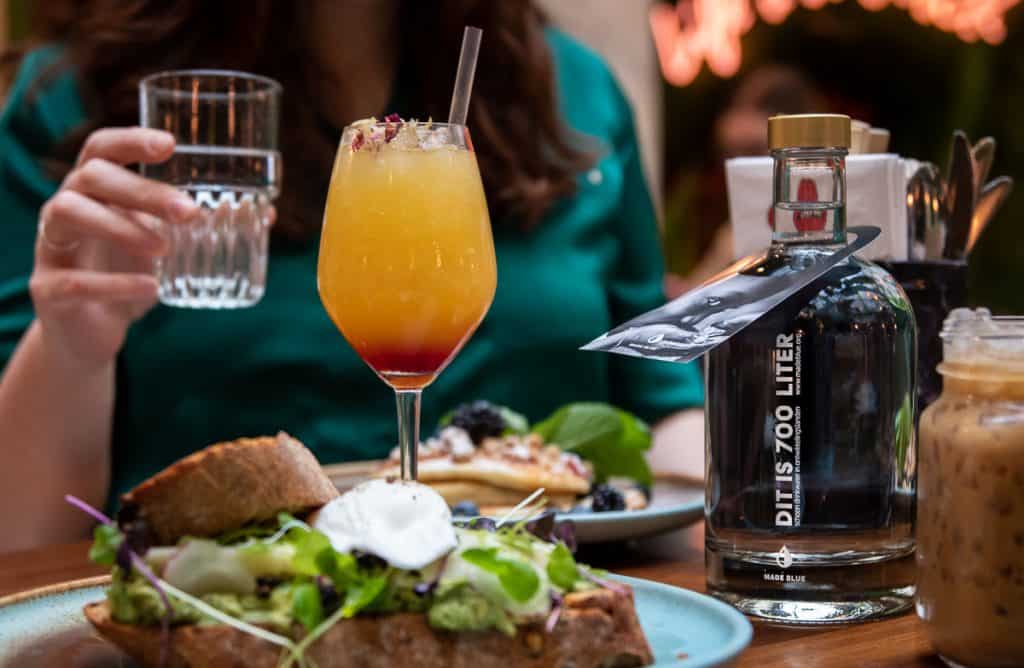
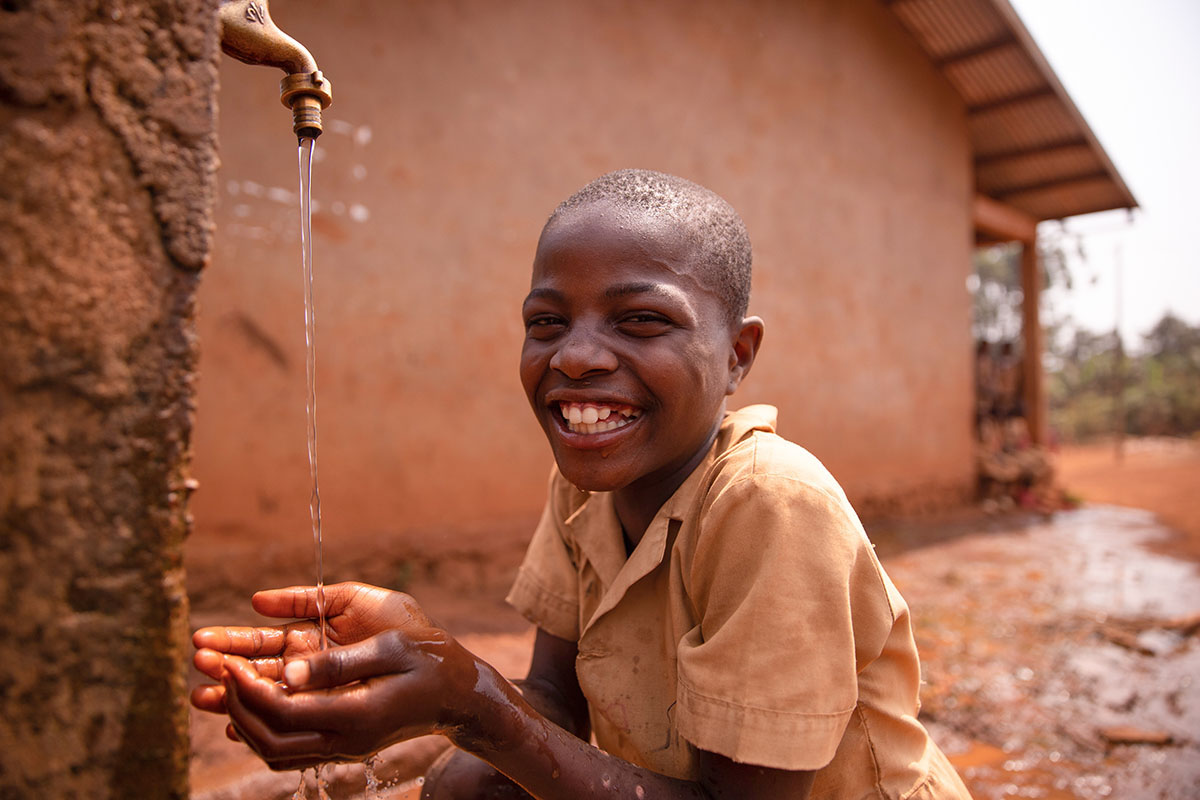
Contribute to our mission too
You can do so in more ways than you might think.